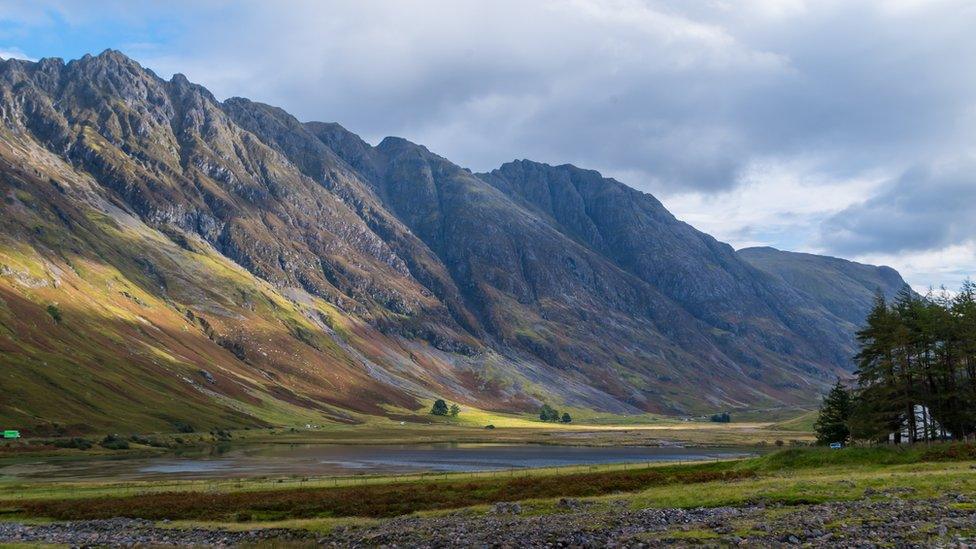Glencoe Mountain Rescue: They leave their day jobs to do this
- Published
Volunteers for Glencoe Mountain Rescue team help save numerous lives every year
Brian Bathurst is a builder by trade but when we meet he is strapped in the back of a coastguard helicopter as it clatters through the dramatic peaks of Glen Coe.
Along with five other mountain rescue volunteers, he is about to be dropped into some of the most remote and difficult territory Scotland's mountains have to offer.
The group, which also includes an off-duty nurse and a marine biologist, are spending their Saturday carefully searching ravines and gullies that hardly anyone ever reaches for signs of a missing hillwalker.
The search for Charlie Kelly has already been going on for days and they have looked in all the obvious places.
They found his rucksack but there has still been no sign of him.
It is frustrating but they refuse to give up hope.
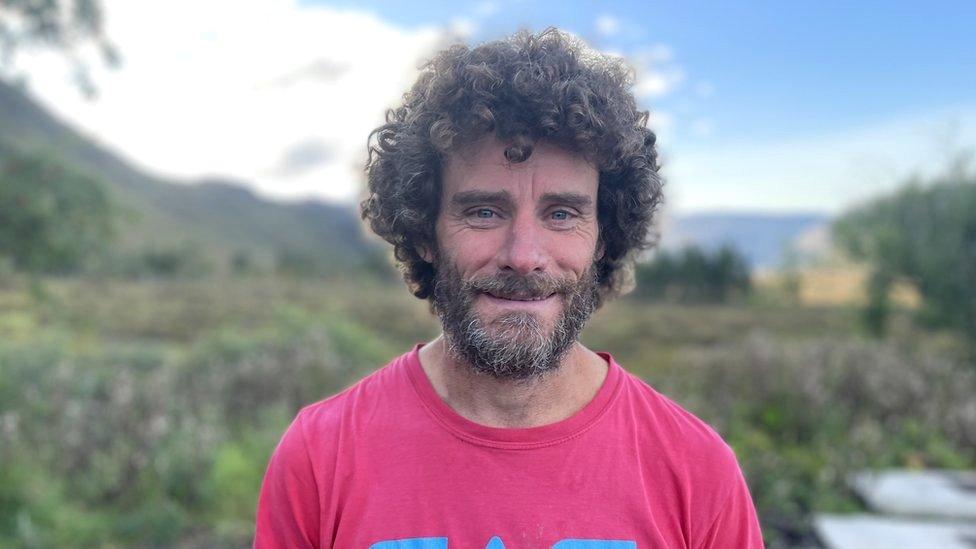
Brian Bathurst, who is originally from Zimbabwe, says: "It's quite challenging terrain and quite complex"
The Glencoe Mountain Rescue Team covers an area that is rugged and beautiful but vast and unforgiving too.
They want visitors to enjoy it but never underestimate it.
Figures provided by Police Scotland show that a total 27 people have died walking and climbing in Scotland's hills and mountains this year.
Eight of them were in the Glen Coe area.
Years of missing birthdays
But many more have been saved after getting into difficulty.
That is where these highly skilled, highly trained volunteers step in, going on to the hills at night or in blizzard conditions to find people in the wilderness and bring them home.
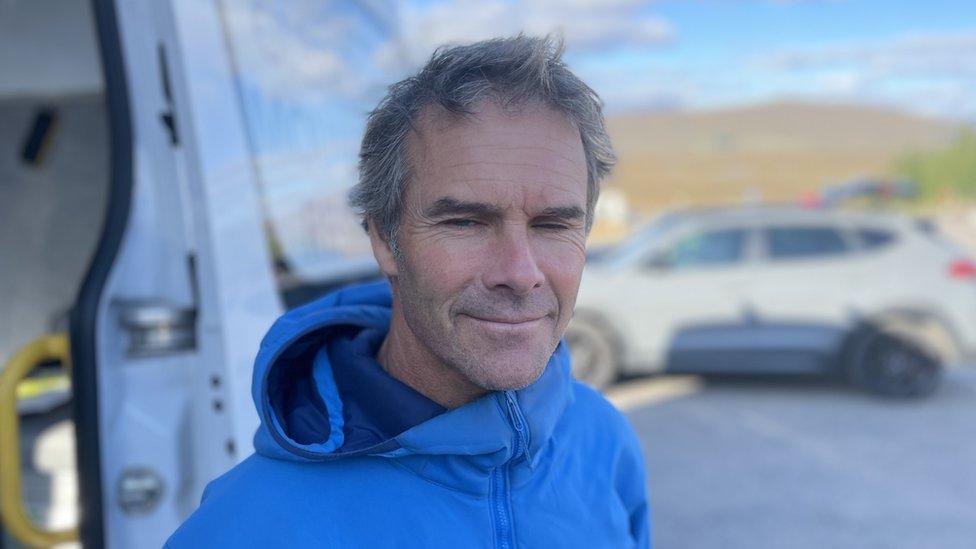
Team Leader Andy Nelson has been involved in mountain rescue for more than 30 years
At the foot of the mountain, team leader Andy Nelson monitors the radios and pores over maps in a van kitted out to serve as a mobile operations centre.
His day job as a mountain guide probably blends easier with this work than some of his teammates. He was once himself rescued in the Alps.
Andy has been involved as a mountain rescue volunteer for more than 30 years now and has been asked many times why he does it.
"The bottom line is human nature" he says. "We want to help each other."
Andy's two children are now grown up but he recalls "years and years of missing family birthdays".
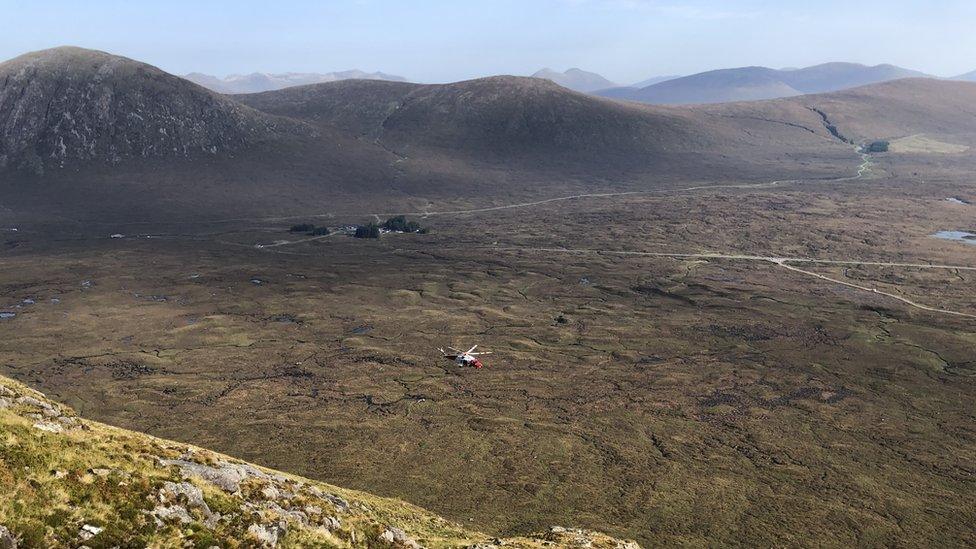
The current search is the second major incident for the team in just over a month.
In August, they recovered the bodies of three climbers who died while scaling Aonach Eagach - a high, narrow ridge that links two summits.
One of those killed was Dave Fowler, an experienced mountain guide who several of the team knew.
That made an already difficult and dangerous task even harder.
Through the course of the day various groups return to the van and brief Andy on the ground they have covered.
There are a total of 25 people covering 15 square miles today, including a search dog unit and a team with a giant quad bike.
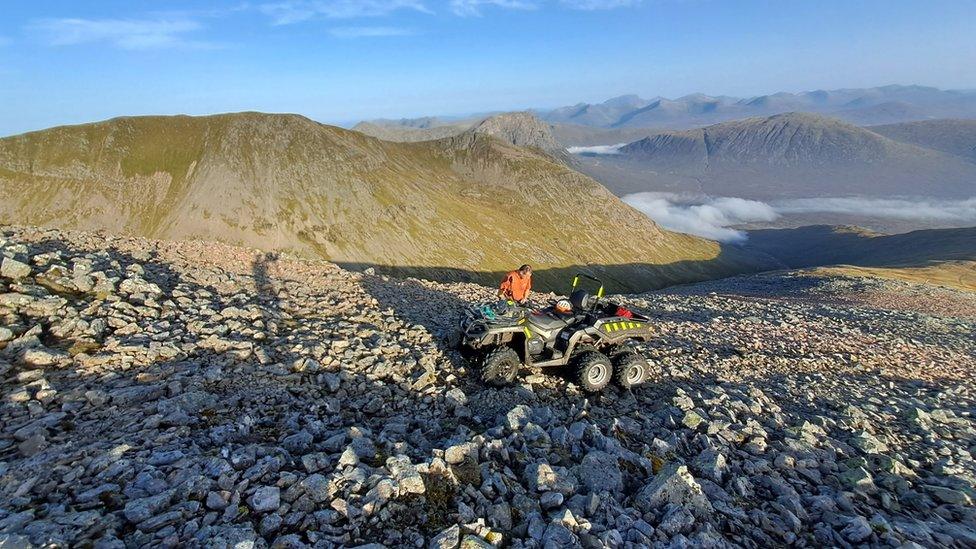
A team with a giant quad bike are among the mountain rescue volunteers
Insp Matt Smith is the link between the volunteer teams and the police's missing person investigation.
His role is paid but he is full of admiration for the work the volunteers do.
"Every one of them will be giving something up at home" he says.
"It could be a son going to a rugby match, a personal commitment, friends coming round for dinner, but every single one of them will be giving something up and they will do that day after day.
"They will leave their day jobs to do this and the dedication is absolutely unbelievable."
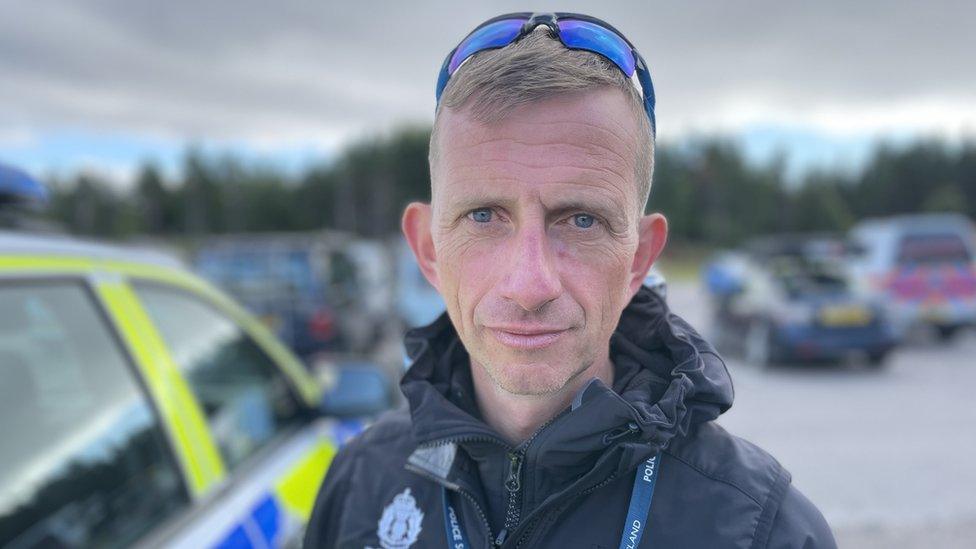
Insp Matt Smith is full of admiration for the work the volunteers do
Insp Smith describes how 50 or 60 years ago the hills of Scotland started to become much busier with outdoor activity.
He said that if someone made it off the hill to raise the alarm in those days the local police officer would need to round up as many locals as they could to assist in a search and rescue operation.
This grew over the years into a network of mountain rescue teams whose volunteers are now highly skilled.
Glencoe is one of three independent rescue teams but 25 others work together under the umbrella of Scottish Mountain Rescue.
The group say they have seen a significant jump in the number of callouts and rescues post pandemic.
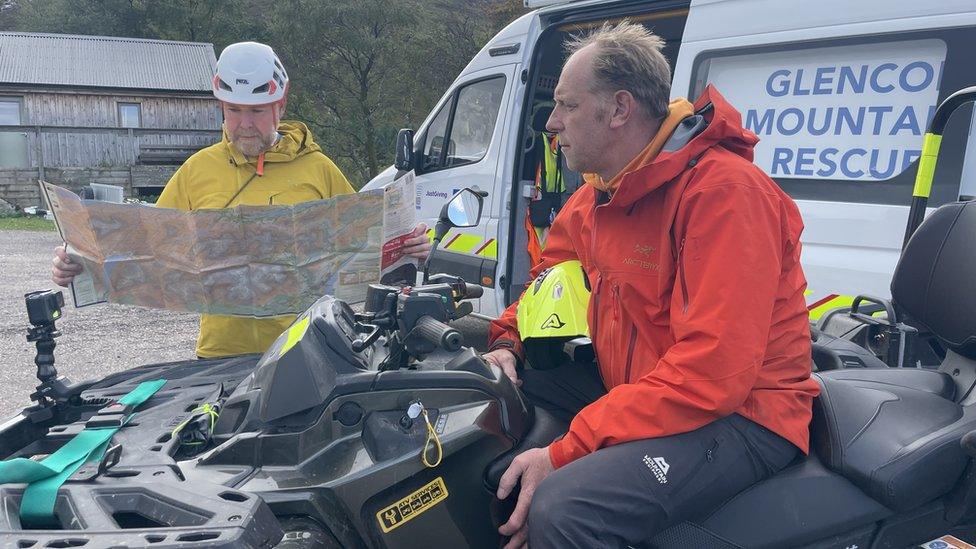
Their statistics show participation in hillwalking and climbing increasing as lockdown restrictions were eased, with a steady stream of people - some of them inexperienced - taking to the hills right across the country after months of being stuck inside.
That, in turn, led to more incidents and record numbers of callouts - 698 incidents in 2021, then 709 incidents last year. The team say they are expecting the figures to be as high again this year.
In total, the Scottish Mountain Rescue teams spent just under 30,000 hours last year aiding and assisting 740 people in all sorts of situations.
Sometimes helping police with missing persons inquiries, or joining water rescue teams searching rivers and lochs, they worked the length and breadth of Scotland with park rangers, local councils and even bomb disposal experts on two occasions.
Back at Glen Coe, the massive mountain range is beginning to be bathed in evening sunlight by the time Brian's team return.
There is still no sign of the missing man.
Brian, who is originally from Zimbabwe, says: "It's quite challenging terrain and quite complex".
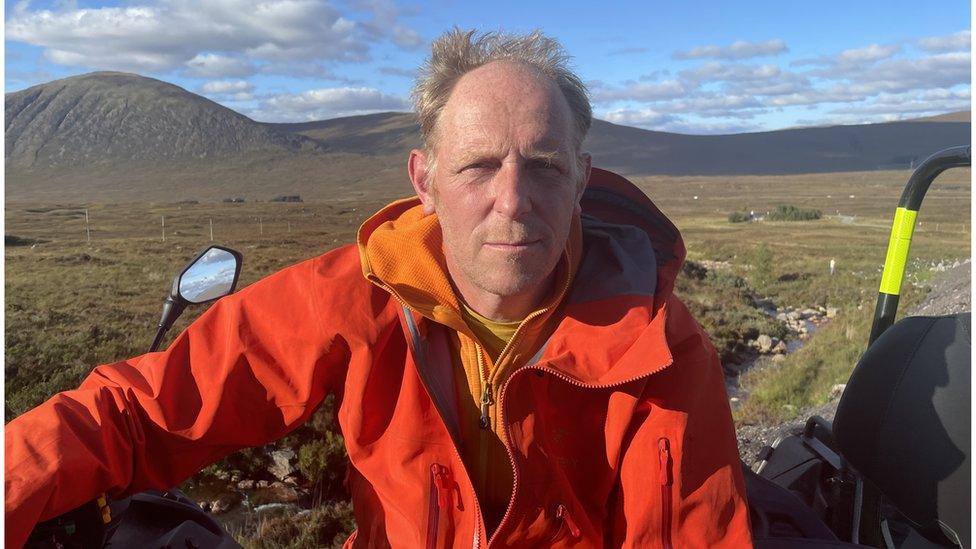
Ewen Lawrie took the week off work to join the search
The organised search will eventually be scaled back but, sitting at the controls of the giant quad bike, volunteer Ewen Lawrie says this community will always keep looking one way or another.
He took the week off work to join the search and has a young family at home.
"We get a huge amount of satisfaction from what we do," he says.
"You can't get anything more rewarding than finding someone that's in a lot of pain or whatever and fixing that for them.
"It can be the worst day of their life ever and you can just make that right.
"Or, on the other side of things, if someone hasn't been so fortunate and they've passed away it's still very rewarding for us to get them and get them back to their family and give a lot of closure to some people."
Related topics
- Published19 September 2023
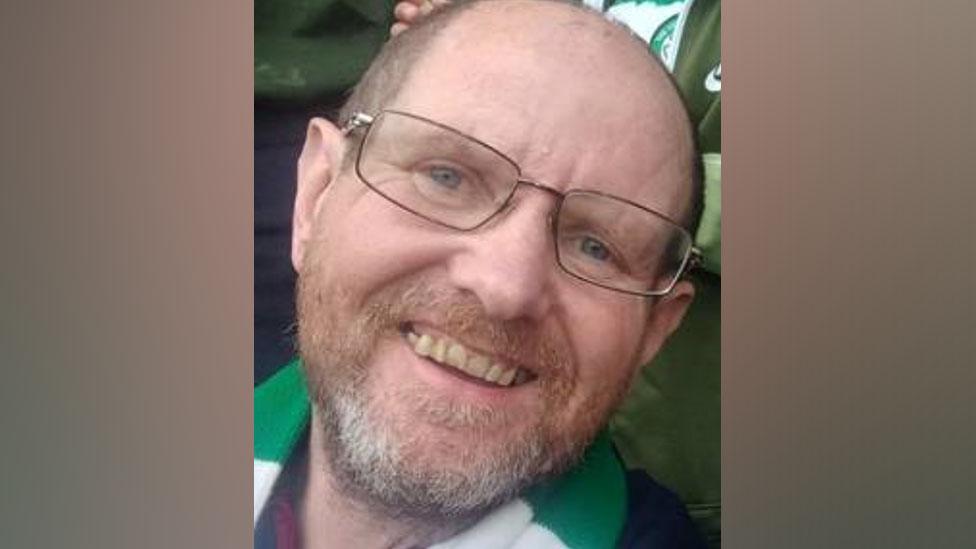
- Published12 September 2023
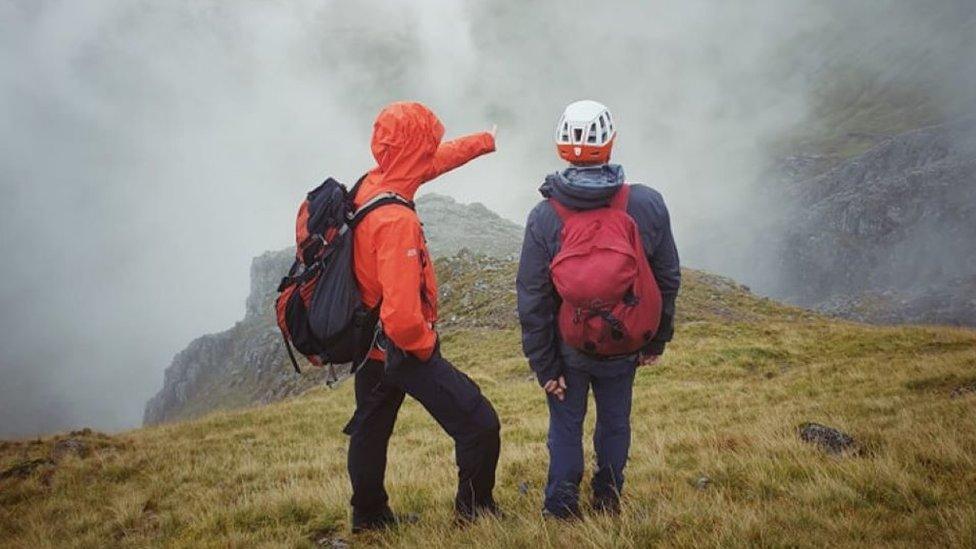
- Published11 September 2023

- Published8 August 2023
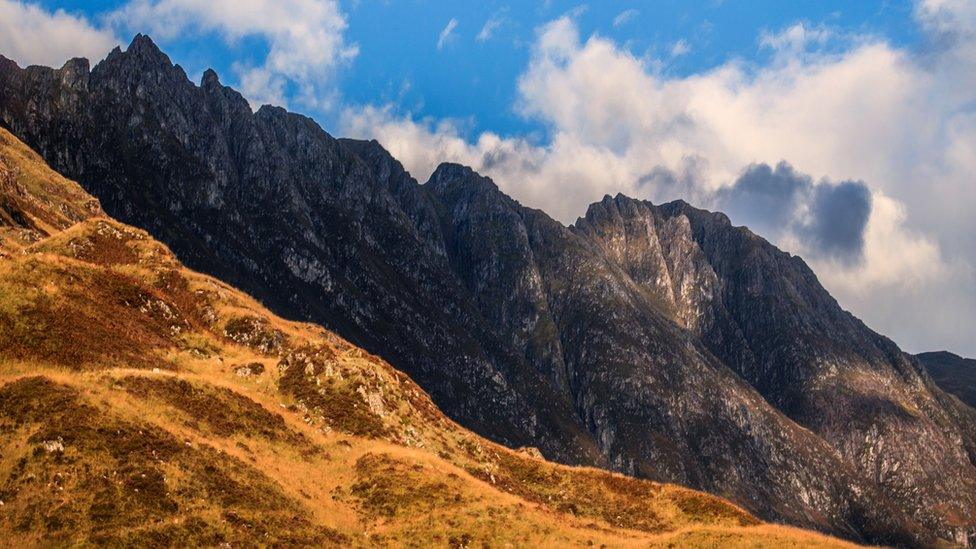
- Published11 August 2023
